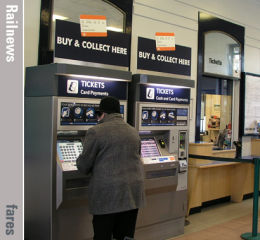Posted 30th November 2019 | No Comments
January fare rises will be ‘held below inflation’

RAIL fares will rise by an average of 2.7 per cent in January, and train operators pointed out that this increase would be below last July’s RPI figure of 2.8 per cent.
The Rail Delivery Group also pledged that its member operators ‘want to work with any future government to make fares easier for customers by reforming outdated regulations’.
The Retail Price Index for July each year is used by governments to set regulated railway fares from the following January, which include season tickets and saver returns on long-distance services.
About 45 per cent of rail journeys are made using regulated fares, and the rest can be set by the operators – with the consent of the Department for Transport. Unregulated fares include Advance tickets and First Class tariffs.
RDG chief executive Paul Plummer said: ‘We understand that no one wants to pay more to travel, which is why train companies have for the third year in a row held the average fare increases below inflation while still investing to improve journeys. Passengers will benefit from 1,000 extra, improved carriages and over 1,000 extra weekly services in 2020 and the industry will continue to push for changes to fares regulations to enable a better range of affordable, mix and match fares and reduced overcrowding on some of the busiest routes.’
Fares have been under scrutiny for some years, both because of their actual levels and also because of the way tariffs are structured.
Keith Williams is expected to make some recommendations to make fares easier to understand when his Rail Review is published, which would not be before the general election.
His review was commissioned by the Conservative government earlier this year, and it is not certain what would happen to his findings if the Conservatives do not win a workable majority on 12 December.
